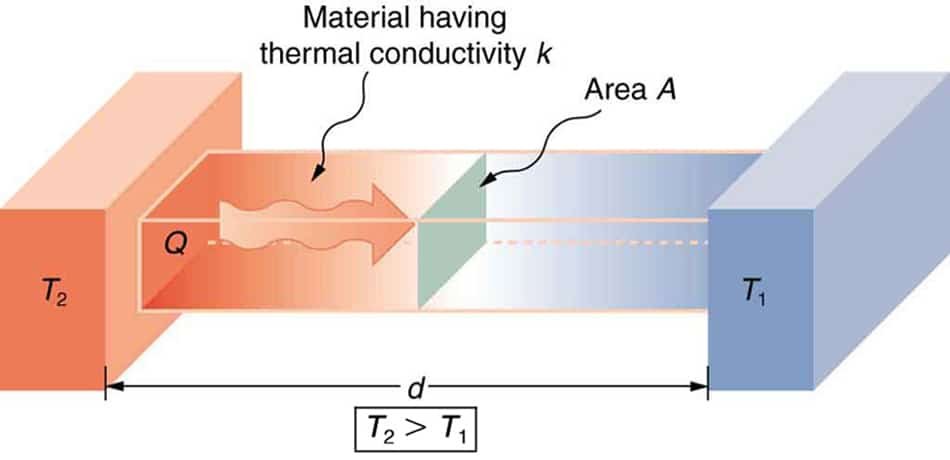Thermal conduction mechanism in solid liquid and gas
Initially, thermal conduction was known as diffusion. Heat flow is the term used when conduction is within a single body while heat transfer is the term when conduction is between tow separate body in physical contact. Heat transfers from hot body to cold body. Thermal conduction can be defined as the transfer of heat from one part of the substance to another part of the same substance or substance with physical contact with it without any displacement of molecules. Conductance is the result of the collision between molecules, atoms and electrons. The rate of heat transfer s the function of temperature difference and medium of heat transfer. Thus, thermal conduction mechanism in solid liquid and gas is different. Conduction continues until there is a thermal equilibrium is achieved.
Thermal conduction mechanism
Solid
In solids, conduction mechanism works in two ways.
- Lattice vibration
- Trasport of free electron
Liquid and Gas
In liquid and gases, conduction mechanism wors in tow different ways.
- Collision
- Diffusion
Gas
For gases, conduction mechanism is simple. The kinetic energy of molecules is the function of temperature. The kinetic energy is the result of random translation motion as well as vibrational and rotational motion. Molecules of gases are in continuous random motion which exchanges energy and momentum. When one molecule from high-temperature region collides with another molecule from the low-temperature region, it loses energy by collision.
Liquid
In liquids, conduction mechanism is similar to that for gases. Compared to gases, molecules in liquids are closed space. In liquids, due to closely spaced molecules, the intermolecular force comes into play.
Also read: Thermal conductivity of the material
Summary
In addition to this, there are many other factors which affect thermal conduction and rate of heat transfer. Though conduction mechanism in solid, liquid and gases have different ways, the only result is heat transfer. This is all about thermal conduction mechanism.




Do you mind if I quote a few of your posts as long as I provide credit and sources back to your site? My blog site is in the exact same niche as yours and my users would certainly benefit from some of the information you provide here. Please let me know if this okay with you. Many thanks!